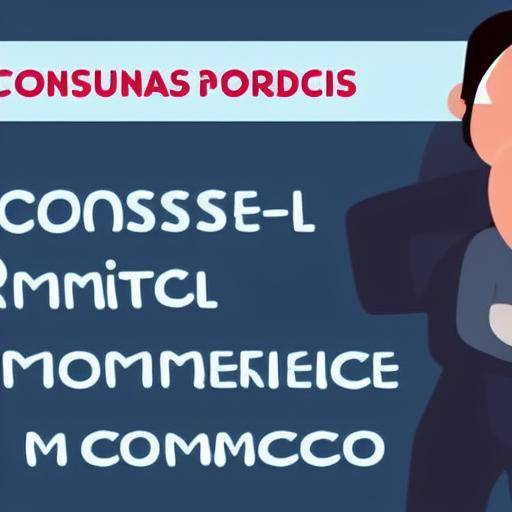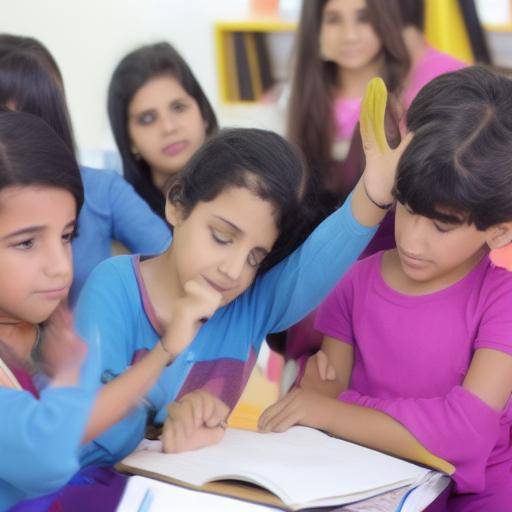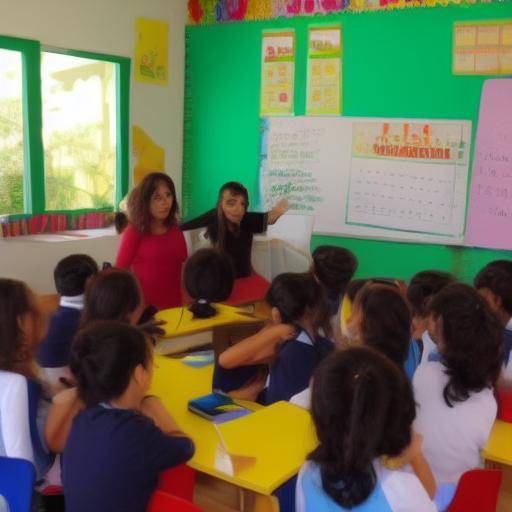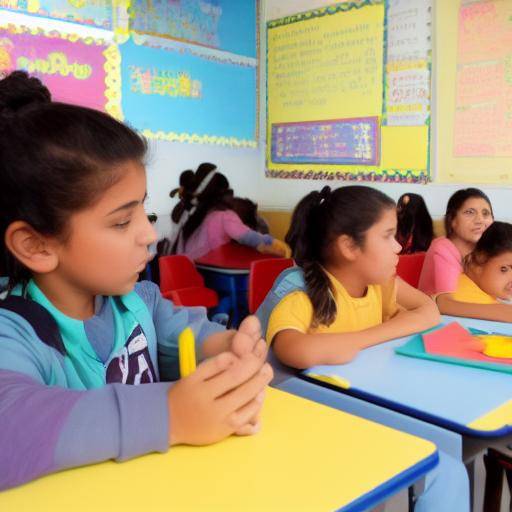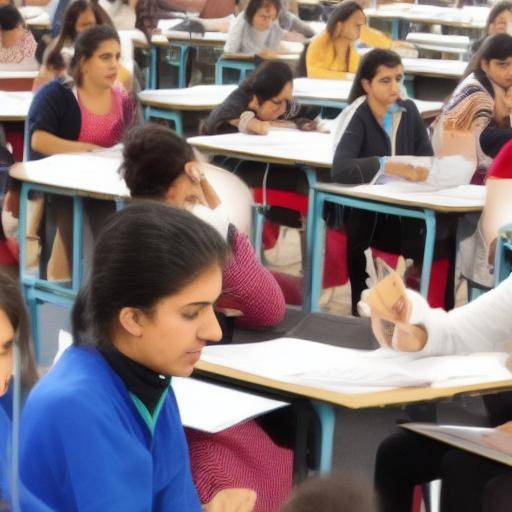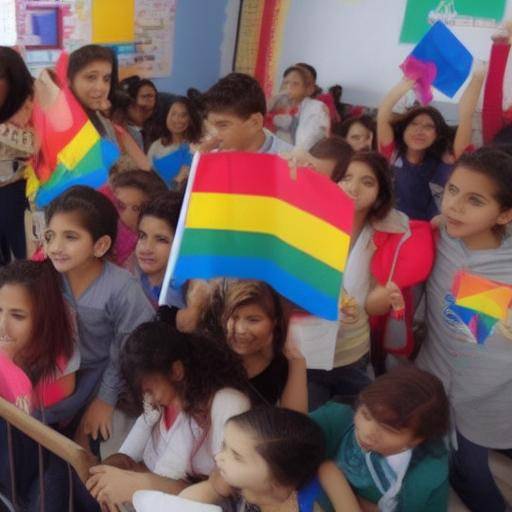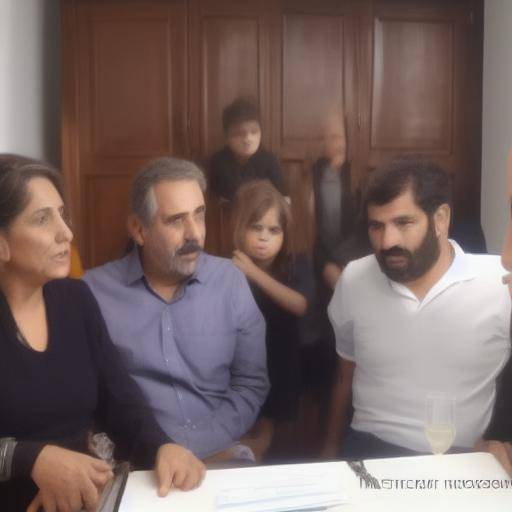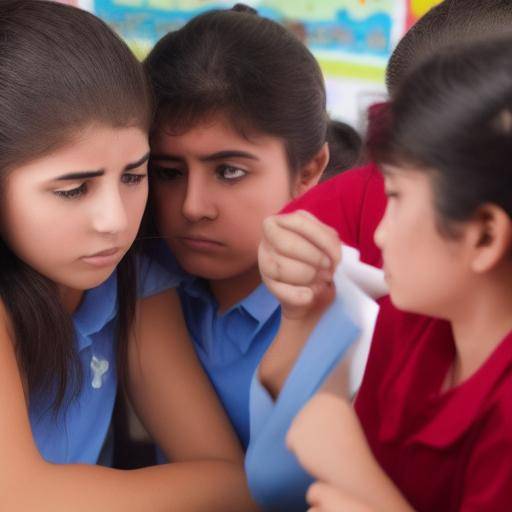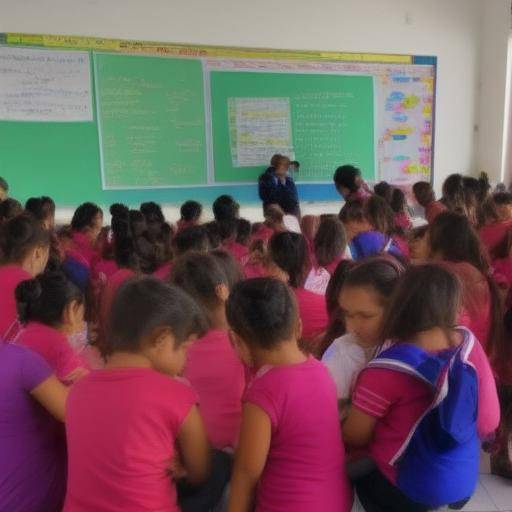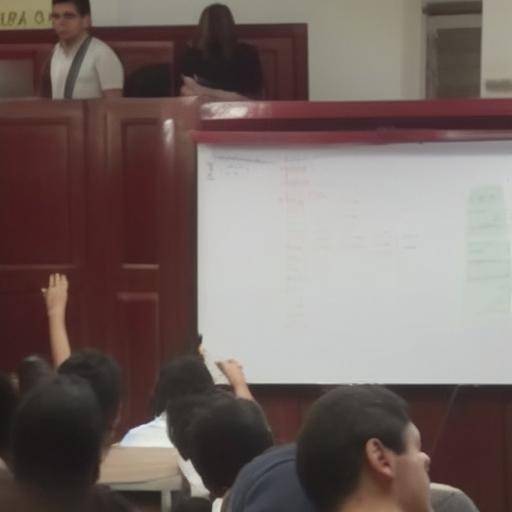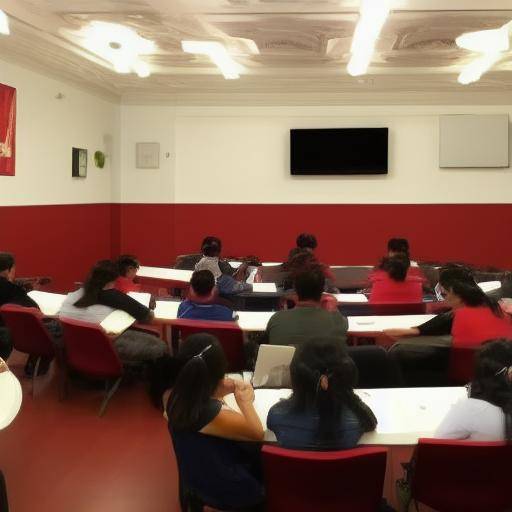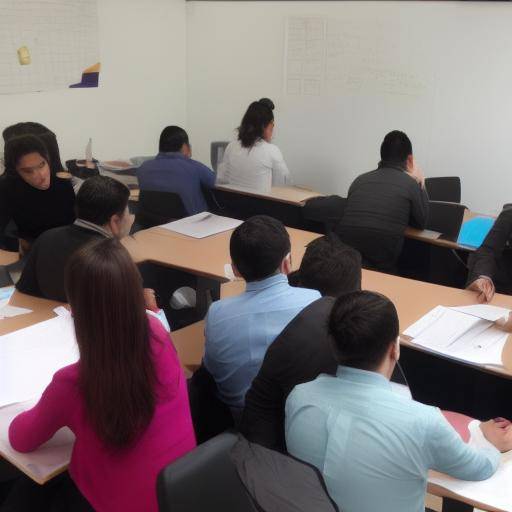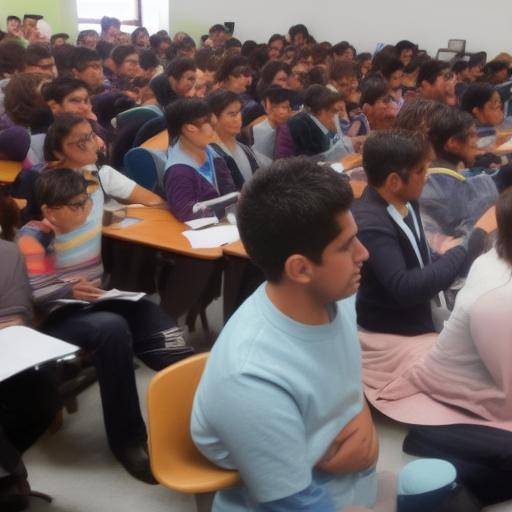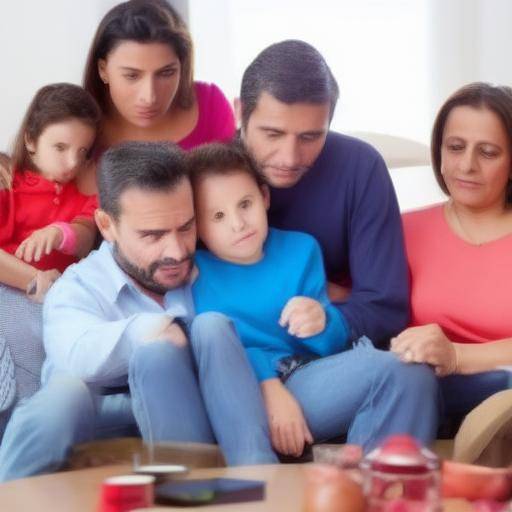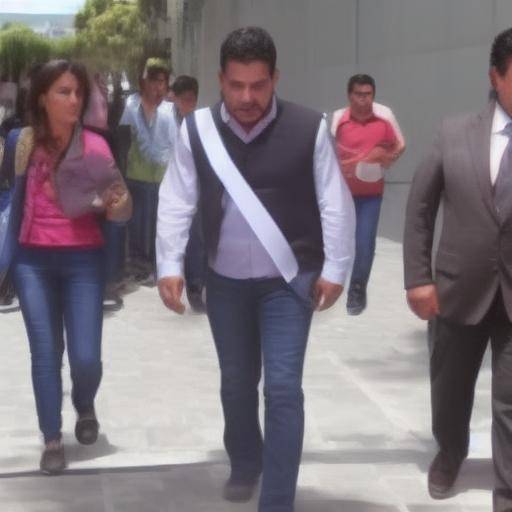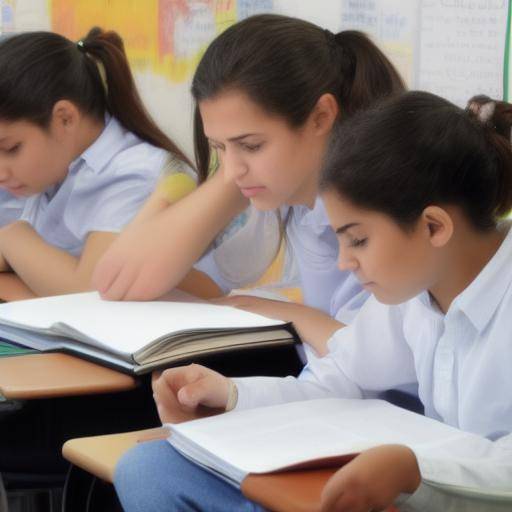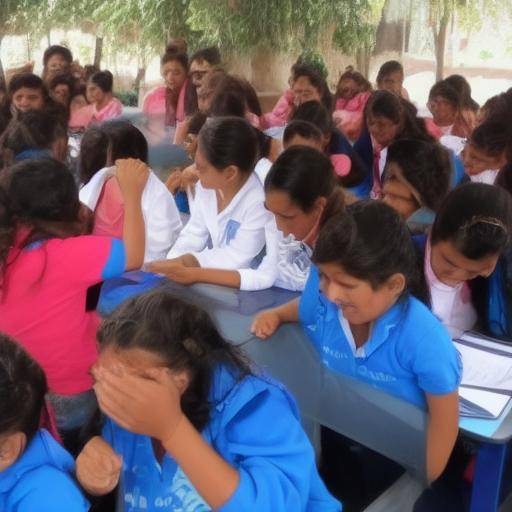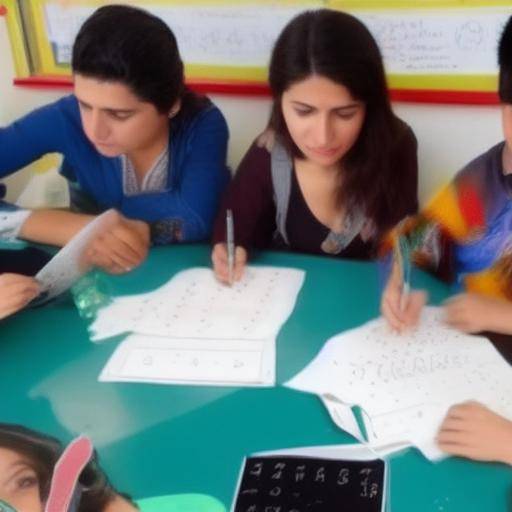
In the dynamics of school teams, whether formed by teachers, administrative staff, parents or students, conflicts may arise at any time. The proper management of these conflicts is essential to maintaining a harmonious environment conducive to academic and personal development. In this article, we will explore effective strategies to handle conflicts in school teams, providing detailed information, practical advice and reflections on the subject.
Introduction
School teams are a diverse and dynamic environment where differences in opinions, values and goals can lead to conflicts. These conflicts, if not effectively addressed, can have a negative impact on academic performance, interpersonal relationships and the overall climate of the educational institution. It is therefore vital to have strong strategies to manage and resolve conflicts in a constructive manner. In this article, we will explore various strategies to address conflicts within school teams, with the aim of promoting harmony, growth and collective success.
History and Background
Origins of conflicts in school equipment
Conflicts within school teams are not a recent phenomenon. Since time immemorial, the diversity of opinions, values and personalities has led to disagreements and tensions in educational settings. These conflicts may arise between teachers, parents and teachers, students or any combination of these actors. It is important to understand that conflicts are inherent in human nature and that their effective management has been the subject of study and development throughout history.
Evolution of conflict management strategies in school settings
Over the years, various strategies have been developed to manage conflicts in school settings. From authoritarian approaches to more collaborative and participatory methods, conflict management strategies have evolved to adapt to the changing dynamics of school teams and the demands of a constantly changing society. Understanding and implementing these strategies have proven to be critical in promoting a harmonious and productive school environment.
Significant issues in the management of school conflicts
Throughout history, significant milestones have been highlighted in the management of school conflicts. From the adoption of non-violent communication-based approaches to the implementation of peer conflict resolution programmes, the evolution of conflict management strategies has been marked by significant progress in understanding human psychology, group dynamics and effective conflict resolution practices.
Analysis in Deep
Benefits of effective conflict management in school environments
Effective conflict management in school environments entails a number of significant benefits. These include the promotion of a positive school climate, the promotion of problem solving skills in students, the improvement of interpersonal relationships and the prevention of impairment of academic performance. The creation of a safe, inclusive and respectful learning environment is essential for the integral development of students.
Challenges in managing school conflicts
Despite the obvious benefits, conflict management in school settings also poses significant challenges. These challenges may include resistance to change, lack of resources to implement conflict management programmes, complacency over latent conflicts and the need for ongoing training in communication skills and conflict resolution. Overcoming these challenges is crucial to ensuring a healthy and productive school climate.
Current Trends in School Conflict Management
At present, there is a trend towards more inclusive and participatory approaches in the management of school conflicts. The promotion of restorative justice and peer mediation is gaining ground as effective methods of addressing conflicts in school settings. In addition, the integration of emotional intelligence and value education into conflict management programmes reflects a response to the growing importance of fostering socio-emotional skills in students.
Comprehensive review
Practical Applications for Conflict Management Strategies in School Equipment
Conflict management strategies can be applied in a variety of contexts within school teams. From conflict resolution between students to mediation of disputes between parents and teachers, these strategies can contribute significantly to the creation of a harmonious and productive school environment. To explore concrete examples of the implementation of these strategies provides valuable insights on their effectiveness and relevance.
Best Practices and Lessons Learned in School Conflict Management
Identifying and sharing best practices in the management of school conflicts is essential for the continued development of effective strategies. Through the analysis of successful experiences, lessons learned and evidence-based recommendations, a strong framework can be established for the successful implementation of conflict management strategies in school settings.
Comparative analysis
To compare different approaches and methods of conflict management in school teams provides a deeper understanding of the strengths and limitations of each strategy. By comparatively examining strategies such as negotiation, mediation, conciliation and collaborative problem solving, it can be determined when and how to effectively apply each method based on the type and severity of the conflict.
Practical Tips and Accessible Tips
Effective Strategies for Conflict Management in School Teams
Specific strategies for managing conflicts in school teams are presented below:
- Promote open communication and constructive dialogue among team members.
- Encouraging troubleshooting based on common interests and shared objectives.
- Providing training in communication skills, active listening and empathy as part of professional development.
Step-by-Step Guide for Conflict Resolution in School Equipment
Conflict resolution in school teams can follow a structured process that includes the following stages:
- Identification and understanding of the conflict.
- Establishment of a safe and neutral space for dialogue.
- Facilitation of expression of emotions and views.
- Joint search for mutually satisfactory solutions.
Expert Reflections and Industry Reviews
For an enriching perspective, experts have been interviewed in conflict resolution in school settings. Their reflections and recommendations provide valuable information on best practices, common challenges and innovative approaches to managing conflicts in school teams.
Case Studies and Real Life Applications
Case 1: Student Conflict Resolution
At a secondary school, a peer mediation programme was implemented to address student conflicts. The program involved students trained as mediators, who facilitated communication and finding solutions between the parties.
Result: The mediation programme significantly reduced student conflicts, promoting a more peaceful and collaborative school climate.
Case 2: Conflict Resolution between Parents and Teachers
In a primary school, a structured dialogue process was established to address disagreements between parents and teachers. The meetings facilitated by a neutral mediator enabled both parties to express their concerns and to collaborate in the search for constructive solutions.
Outcome: The dialogue process improved mutual understanding and strengthened collaboration between parents and teachers, benefiting academic performance and student well-being.
Future Trends and Predictions
Adaptation to Emerging Trends in Conflict Management in School Equipment
As social, cultural and technological dynamics evolve, conflict management in school teams also undergoes changes. The integration of digital tools for conflict resolution, the approach to early-age emotional education and community collaboration in conflict management are emerging trends that will require adaptation and possibly set new standards for effective conflict management in school settings.
Future Challenges and Opportunities in School Conflict Management
The future of conflict management in school teams poses unique challenges and opportunities. The increase in cultural diversity, the globalization of education and digital interconnection present the need for innovative strategies that address increasingly complex conflicts. At the same time, these trends provide opportunities for the development of inclusive and effective approaches to the management of school conflicts.
Conclusions and FAQs
Conclusion
Conflict management in school teams is an integral aspect of promoting harmony and collective success in educational settings. The implementation of effective strategies to address conflicts contributes significantly to the academic, emotional and social development of students. In fostering constructive conflict resolution, school teams can cultivate an enabling environment for learning, collaboration and individual and collective growth.
Frequently asked questions
1. What role does communication play in conflict management in school settings?
Effective communication is fundamental in the management of conflicts in school environments, as it promotes mutual understanding, facilitates the expression of emotions and views, and encourages the search for collaborative solutions.
2. How can school teams promote conflict resolution among students?
School teams can promote conflict resolution among students by implementing peer mediation programs, offering training in conflict resolution skills and fostering a culture of empathy and mutual understanding.
3. What is the role of emotional intelligence in conflict management in school settings?
Emotional intelligence plays a crucial role in conflict management in school settings by strengthening self-consciousness, self-regulation, empathy and social skills, which are critical to constructively addressing conflicts.
4. What are future trends in conflict management in school settings?
Future trends in conflict management in school settings include the integration of digital tools, the focus on emotional education and community collaboration to address conflicts more broadly and effectively.
5. How can school teams overcome conflict management challenges?
School teams can overcome challenges in conflict management by training in communication skills and conflict resolution, fostering a culture of collaboration and developing approaches adaptive to the changing needs of the educational community.
6. What is the impact of effective conflict management on academic performance?
Effective conflict management in school teams results in a positive impact on academic performance by creating an enabling environment for learning, reducing emotional stress and fostering collaboration and commitment on students.
Conclusion
Conflict management in school teams is a key aspect of promoting a healthy and productive educational environment. By implementing effective strategies to address conflicts, school teams can foster positive relationships, create an enriching learning climate, promote conflict resolution skills in students and strengthen collaboration among all members of the educational community. In understanding and implementing the strategies presented in this article, school teams can play a key role in fostering a harmonious, respectful and enabling school environment for comprehensive student growth.
Addressing this challenge, conflict management in school teams can become an opportunity to promote understanding, mutual respect and the development of vital social skills that will benefit the entire long-term school community.
This concludes our comprehensive analysis of strategies to manage conflicts within school teams, providing a comprehensive vision, practical advice and deep reflections on this crucial issue.
External resources:
- Psychology of Conflict and Negotiation
- Conflict Resolution in the School
- Effective Strategies for Conflict Management in School Equipment
With this detailed, practical and relevant information, we hope to have provided a useful guide for those interested in effectively addressing and managing conflicts in school settings. If you have more questions or wish to explore other related topics, do not hesitate to contact us. Thank you for reading!



